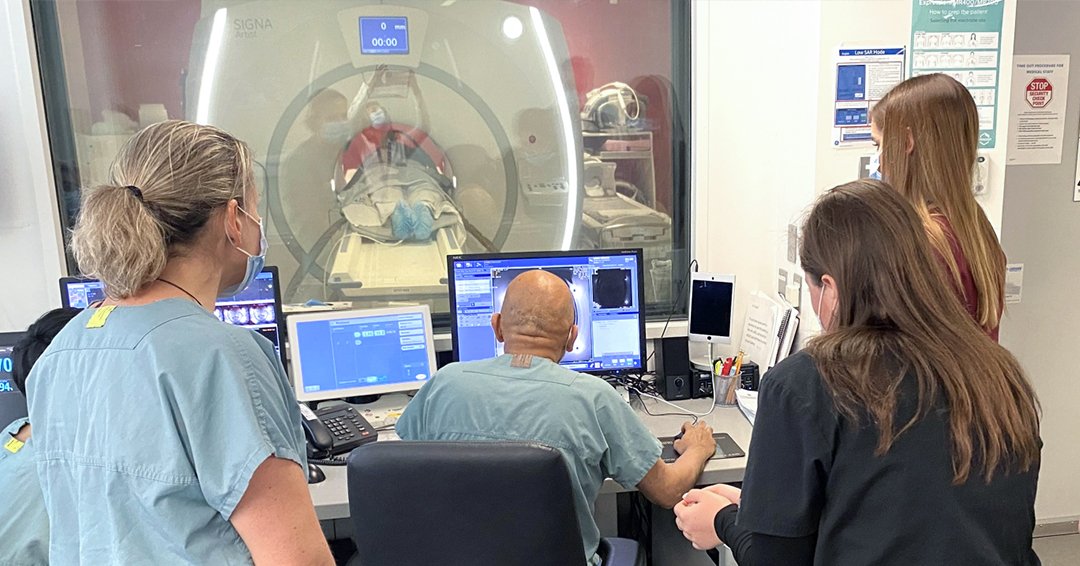
Minimally invasive treatment is helping people with uncontrollable shaking caused by neurological disease
“There were a lot of things I wasn’t able to do,” says René Léveque, who had the procedure for his essential tremor three years ago. “Like holding a glass of wine, anything liquid, to cut food, especially meat, was very difficult.”
Lévesque became one of about 50 patients to receive a life-altering treatment from neurosurgeon and researcher Dr. Abbas Sadikot. Magnetic resonance-guided ultrasound applies high-frequency energy through the skull without an incision, directly to the part of the brain that is causing the hand tremors. The procedure is done inside a magnetic resonance imaging (MRI) machine so doctors can target the energy precisely. The energy is focussed on a specific region of the brain, destroying the cells that cause the tremors.
“Our program was made possible after our team at McGill obtained a highly competitive grant from the Canadian Foundation for Innovation,” explains Dr. Sadikot. “This technology allows patients with essential tremor or Parkinson’s disease to get access to a new alternative treatment. Importantly, it also allows us to continue important research and development into new methods for treating many other neurological conditions that have a serious impact on the lives of our patients.”
A first for Quebec, this pioneering treatment began in 2018 as a collaboration between The Neuro and the Montreal General Hospital, two facilities of the McGill University Health Centre (MUHC). Montreal is one of only three cities in Canada where this innovative procedure is available.
“The successful delivery of this procedure is an example of research that leads to concrete, positive results for patients who need it,” says Dr. Guy Rouleau, Director of The Neuro. “As the first in Quebec to provide MR-guided ultrasound, The Neuro and the MUHC are improving patient care and laying the foundation for further research in this field which will benefit more patients in the future.”
When Lévesque visited Dr. Sadikot for an examination, he demonstrated his steady right hand. Dr. Sadikot says eight times out of ten the tremors go away permanently. In Léveque’s case, every day without tremors is a gift.
“It’s changed my life,” says Léveque. “Before the surgery, I wasn’t able to write. I could no longer work with clients because I couldn’t write and I need to write a lot in my work. But now my writing has improved 96% from what it was.”
